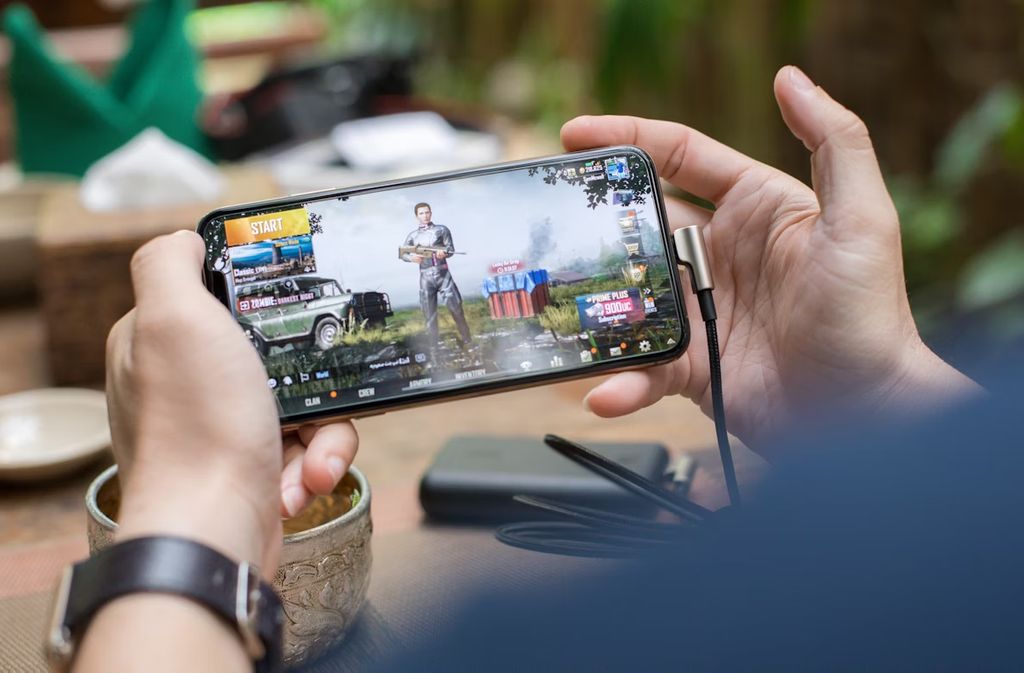The Future Of Mobile Gambling In The Coming Years
Oct 21, 2025 • 6 views
Mobile has become the main way people gamble online. The change came fast as smartphones got cheaper, internet speed improved, and apps became easy to use. For many, the phone replaced the computer because it is always close at hand and allows quick sessions during the day. This shift is not only about comfort but also about habits, since people now play in shorter bursts rather than long sessions at home. In this text, we look at where mobile gambling stands today and what could come next in the near future.

Today’s Mobile Gambling Market
Most online gambling is done on mobile phones. In 2024, more than 60% of the bets were placed via mobile devices, and the trend keeps increasing. Apps are used more than browsers because of the convenience they offer, i.e., quick logins, alerts, and easy payments. However, browsers are still utilized by users who do not want to install extra apps on their devices.
Both options have the same basic tools: live dealer tables that work on small screens, quick deposits and withdrawals, and personal limit settings. One game that shows how mobile play has changed things is the Valor Bet Aviator game. It works in short rounds, where a plane takes off, and players decide when to cash out before it flies away. The format is easy, fast, and very convenient for short plays on a phone.
New Tech on the Horizon
New technology is shaping how people use mobile gambling. Phones are already the main tool, but the next step will be speed, security, and easier access. Some changes are already here, others are only being tested, but they all show what may come in the following years.
5G and cloud: Faster networks mean less delay in live games and payments. With cloud, bigger games can run on normal phones without heavy downloads.
AI: Helps block fraud and fake accounts and tracks play to send reminders when sessions get too long.
Wallets and biometrics: Payments with Apple Pay, Google Pay, or a fingerprint make deposits faster and safer.
VR and AR: Still small, early versions let players join tables through a headset or phone camera.
The combination of speed, safer payments, and new forms will predetermine mobile gambling. Some, such as AI and mobile wallets, are already becoming viral. Others, including VR and AR, will take longer to reach more people.
How Mobile Play is Changing
Mobile play tends to be less but more frequent. Rather than spending an hour in one sitting, a number of players spend a few sessions within a day. In a 2024 European report, it was established that the average mobile gambling session is 7-8 minutes, with most users coming back to it multiple times in a 24-hour period. This demonstrates that phones have enabled play to become part of people's lives, unlike computers.
The young adults are also enjoying an increased share. In North America, research revealed that approximately 35 % of mobile game players were aged between 18 and 29 years. Such a population tends to demand fairness and clear regulations, and they easily abandon applications that are not transparent. This is further enhanced by local legislation, and in specific markets, the use of ID checks before use, or limits on the amount of money that may be deposited directly, influence how individuals may use these applications.

Rules, Security and Responsibility
With the increase in mobile gambling, the checks surrounding it are becoming firmer. Numerous applications are now requesting full ID before deposits or withdrawals with document upload or database match. The regulations will vary depending on the location. In Europe, a few countries operate strict systems in which there are self-exclusion lists, in the US, each state has its system, and in Asia, some markets prohibit gambling and others permit it with laxer regulations. Tools, such as self-exclusion, deposit limits and reminders, are also added on the user side through apps. In Europe, the privacy laws like GDPR compel operators to clarify to the user how they use their data and provide them with a choice on how they want to manage their information.
Key Challenges for Mobile Gambling
Mobile play has also come with issues that operators and users must confront. These are some of the ones associated with the way their phones are used, others with the market and the payment systems in general. The key points would be placed in the following way:
Longer play risk: Phones are always close, so short sessions can add up and lead to longer play than planned.
Cybersecurity threats: Apps and payment systems remain targets for fraud and hacking, making constant protection necessary.
Market saturation: With hundreds of apps available, many looks similar, making it harder for new ones to stand out.
Payment issues: In some regions, cards, or wallets work smoothly, but in others, payments can be blocked or delayed.
Surveys in Europe in 2024 showed that about 18% of mobile players felt they spent more time than planned because the phone was always near. At the same time, a US study found that 12% of users had faced at least one payment failure in the past year.
Looking Ahead
Mobile will remain the main way people gamble online. Phones are already central, and new tools will only strengthen this. Social options like shared tables or chats will likely grow, and many apps will allow smooth switching between phone, tablet, or TV. The real question is how fast technology and rules can move together. Innovation makes play quicker and safer, but regulation is needed to keep it in check. The future of mobile gambling will be shaped by both sides, with growth depending on finding the right balance.
